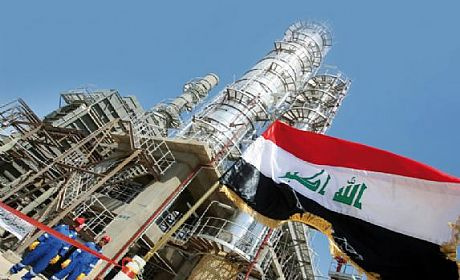Iraq Will Go Bankrupt Soon

Where is this respectable government taking us? The answer to this question in any form would be related to Iraq’s future and its economy. After many warnings and threats which involved the country and could not be ignored, it is predicted that this year Iraq would have a 50 billion dollar deficit. It is expected that the government will not be able to execute any of its plans in the coming years. The assessments of the West’s expert institutions indicate that the country will go bankrupt during the next three to four years.
We certainly do not need such assessments. We know quite well what is happening in our country and these assessments are all predictable. If the present situation is to be continued, the simplest economic calculations would show that no better conditions would be awaiting us.
This is happening in our country while the country is at a climax in its oil incomes and, with the increasing average of oil productions, this questions is raised more than ever before that after ten years of these conditions, where have all of these oil incomes gone? Furthermore, while Iraq’s population is reaching 50 million and the water reservoirs of the Euphrates are reducing on a daily basis and the environmental problems are constantly growing and the production situation of the country is worsening, what would we intend to do then? Could the government be satisfied with the present oil production and provide the needs of millions of its employees and pensioners under the shadow of a lack of real production?
What will Iraq do when there are not enough possibilities to build hospitals, schools, universities, arms for the army to defend internal security, water systems, health networks and basic services? The government does not have the resources to provide the financial costs of these sectors because whatever it earns it is spending for public budgets, meaning the salaries of government employees.
Iraq is a country which lives on huge oil incomes and its people trust oil productions and whatever the government earns it spends on the salaries of employees and pensioners and practically nothing is produced. We are the only country in the world which has this much wealth but our cities do not have sewage systems. We do not have proper roads and no good services are offered. The Iraqi citizens receive water and electricity almost free of charge while there is not enough electricity and the water is not clean. Such an issue is unprecedented in the world.
Officially and legally, the Iraqi people receive free education and health care but they do not receive proper services in this regard and this is another difference between Iraq and other countries of the world.
The people of Iraq receive everything almost free of charge but they are not valuable and sometimes even this small amount of services is threatened and if the present policies continue, there is the possibility that this little amount of services would also be cut.
Nonetheless, all of the politicians are chanting colorful slogans in their election campaigns and talk about the benefits of this huge government. The people demand more, which of course is their right, but no one asks, where are we going?
The big problem is that no one dares to stand against public opinion and say what is happening inside the country. No one asks where this country, which about one fourth of its people live under the poverty line, is headed to. What are the ultimate demands of the people?
Certainly no one wants to damage his reputation and be accused of taking away the benefits of the people. No one dares to say the realities of the conditions of the country.
Those politicians who said that the wealth must be divided among the people, and even the political factions mentioned this issue as its national plan, must take note that the government is not capable of providing the necessary economic grounds to offer proper services. If the present situation is to be continued as it is and the citizens directly receive money and the oil incomes are divided among them with the justification that we must fulfill their needs, I must say that the country will soon go bankrupt. Then who would build hospitals? Who could create health networks? Who could buy arms to defend the country? And the more important question is, who could activate production in agricultural and industry sectors?
Some say that we will give these tasks to the private sector. The private sector would build these substructures instead of the government.
Based on the realities, I must simply say that considering the experiences of the Third World countries, so long as an active, powerful and accountable government is not in power, the private sector could not succeed in fulfilling its tasks and would even have a hard time performing its traditional responsibilities.

